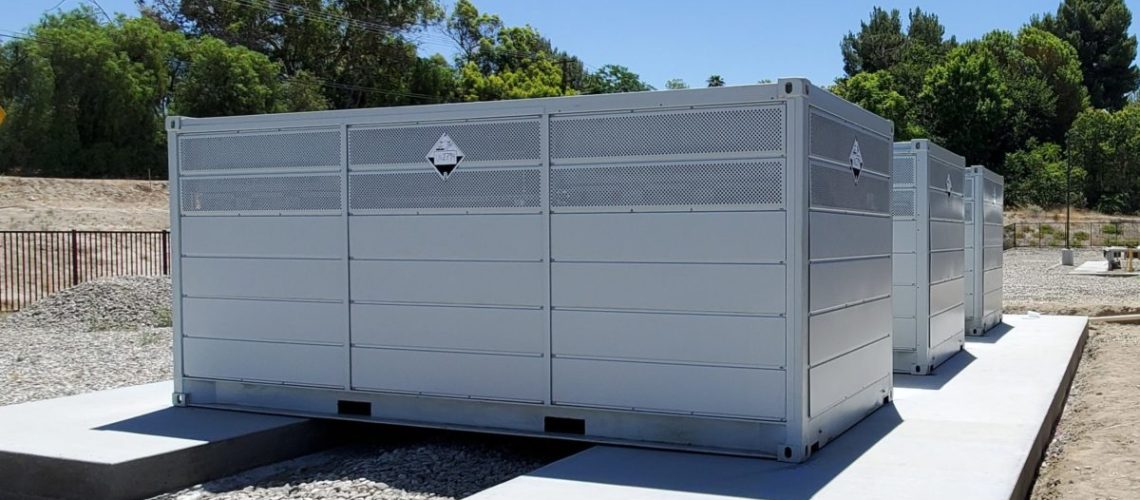The deployment of a vanadium flow battery at a fire station run by Native Americans illustrates the role that the energy storage technology can play in ensuring that nobody is disadvantaged by the shift away from fossil fuels.
From pv magazine global
Global development has always relied on exploiting natural resources. Coal, oil, and gas not only fueled hundreds of years of industry but formed many of the building blocks of modern society. During the past year, however, the world has once again been reminded of the inherent geopolitical and economic instability in an energy system based on fossil fuels. But as a result the transformation in the global energy landscape has significantly accelerated.
Policymakers are rapidly updating and adapting their energy strategies in light of the present challenges. Global ambitions for solar and wind power deployment, alongside grid-scale energy storage, are rising as countries look to lock in their long-term energy security and restrain record high energy prices, all while achieving critical decarbonization goals.
To achieve net zero, the world must deploy renewables and energy storage faster and at greater scale than has ever been seen before. This cannot be a case of advancement at any cost, however. The global energy transition presents us with a vital opportunity to reshape our societies in a more just way.
Energy for all
A just transition seeks to offer the benefits of clean energy to all, with no one left behind. A low-carbon energy system, underpinned by renewables generation and grid-scale batteries – and supported by appropriate policy and investment decisions – will lead to lower long term energy prices, cleaner air, and a huge reduction in greenhouse gas emissions. Done right, this new energy system will create tremendous economic growth and employment opportunities, with those benefits accessible to individuals whose livelihood it threatens, such as workers in the fossil fuel industry, and to communities which disproportionately bear the brunt of the climate crisis.
Invinity recently delivered a vanadium flow battery to a fire station run by the Soboba Band, or tribe, of Luiseño Native Americans in Southern California.
The battery will be coupled with solar panels, and will store excess energy produced at times of low demand to release it when the power is most valuable. The system will also provide back-up when power outages caused by wildfires hamper the ability to provide emergency services to the local community.
Beyond lithium
Energy storage systems are the key to enabling a fully renewables-powered future. By offering a solution to the inherent intermittency of wind and solar power generation, energy storage delivers low-cost, low-carbon energy on-demand for families, businesses, and grid operators around the world.
Lithium-ion batteries have dominated the market to date. Designed primarily to correct occasional deviations in network frequency and fill short-term supply gaps, the technology has done an excellent job, so far, of proving the value batteries can provide as part of our electricity system.
Yet lithium batteries have inherent challenges when used in this manner, limiting the role they can play in a just transition. Currently only 5% recyclable, lithium-ion batteries are expected to generate two million metric tons of waste by 2030. There are also a host of issues surrounding the lithium-ion supply chain, including the use of “conflict minerals” such as cobalt.
To shift to a more sustainable economy that incorporates just transition principles we must look beyond lithium as a “one-size-fits-all” option, and look to a more diverse group of battery technologies to store and deliver clean power on demand.
All of the above
Vanadium flow batteries (VFBs) are already established as a leading alternative to lithium-ion devices for stationary energy storage projects. A type of long duration energy storage (LDES) capable of providing from two to more than 10 hours of energy on demand, VFBs are gaining significant attention for their unparalleled ability to store and deliver power on an industrial scale. VFBs do this using vanadium, a metal produced around the world and used primarily to harden steel.
Unlike lithium-ion batteries, VFBs are highly recyclable and do not degrade with use, lasting 25 years or more even with heavy daily use. Vanadium is readily available and can be either mined or recovered from industrial waste. VFBs are also a safe choice as they are fundamentally non-flammable.
Invinity has already deployed VFBs at more than 50 sites across the world, and the installed capacity of its batteries is set to more than double this year in response to growing demand for the technology as its capabilities are proven over and over again in global renewable power and standalone battery projects.
Let’s act now
The increasing global deployment of renewables and energy storage technology, supported by significant policy intervention and investment in the UK, EU, North America, and Australia in recent years, is certainly cause for celebration. But we must keep just transition principles at the front of our mind as we drive towards a low-carbon future.
By broadening policy – both globally and at a national level – which supports the deployment of a diverse set of cost effective and sustainable energy storage solutions, we can avoid a path to a dependency which, left unchecked, could massively curtail the long-term benefits of the sustainable energy transition and threaten the ultimate goal of reaching net-zero with no one left behind.
Matt Harper is the co-founder and chief commercial office of UK-based vanadium-flow battery supplier Invinity. His career spans pioneering work in electrical energy storage, wastewater treatment, hydrogen generation, and fuel cell vehicles. He holds a master’s degree in management and engineering from MIT.



